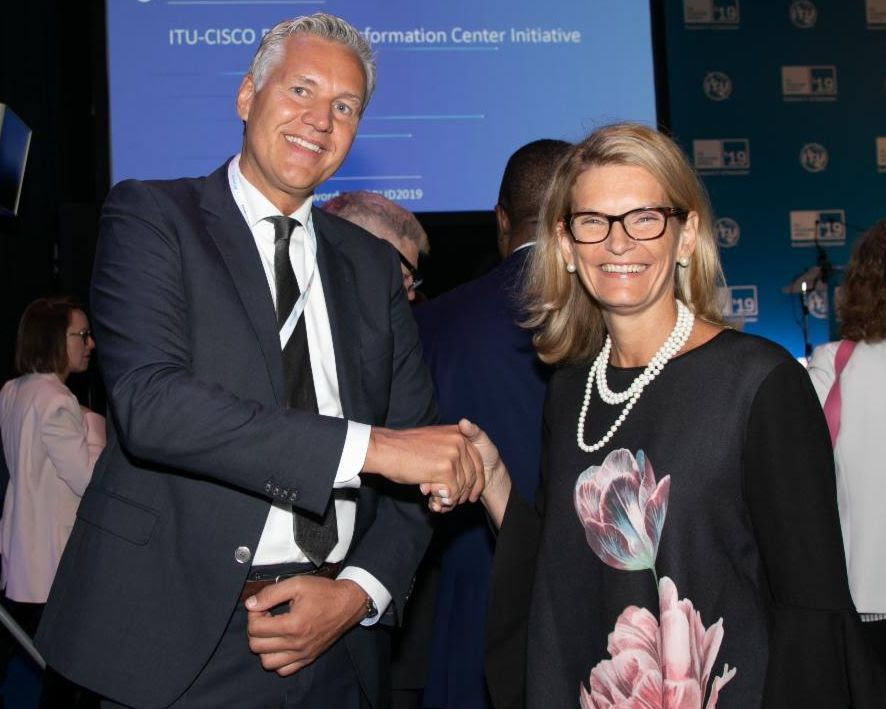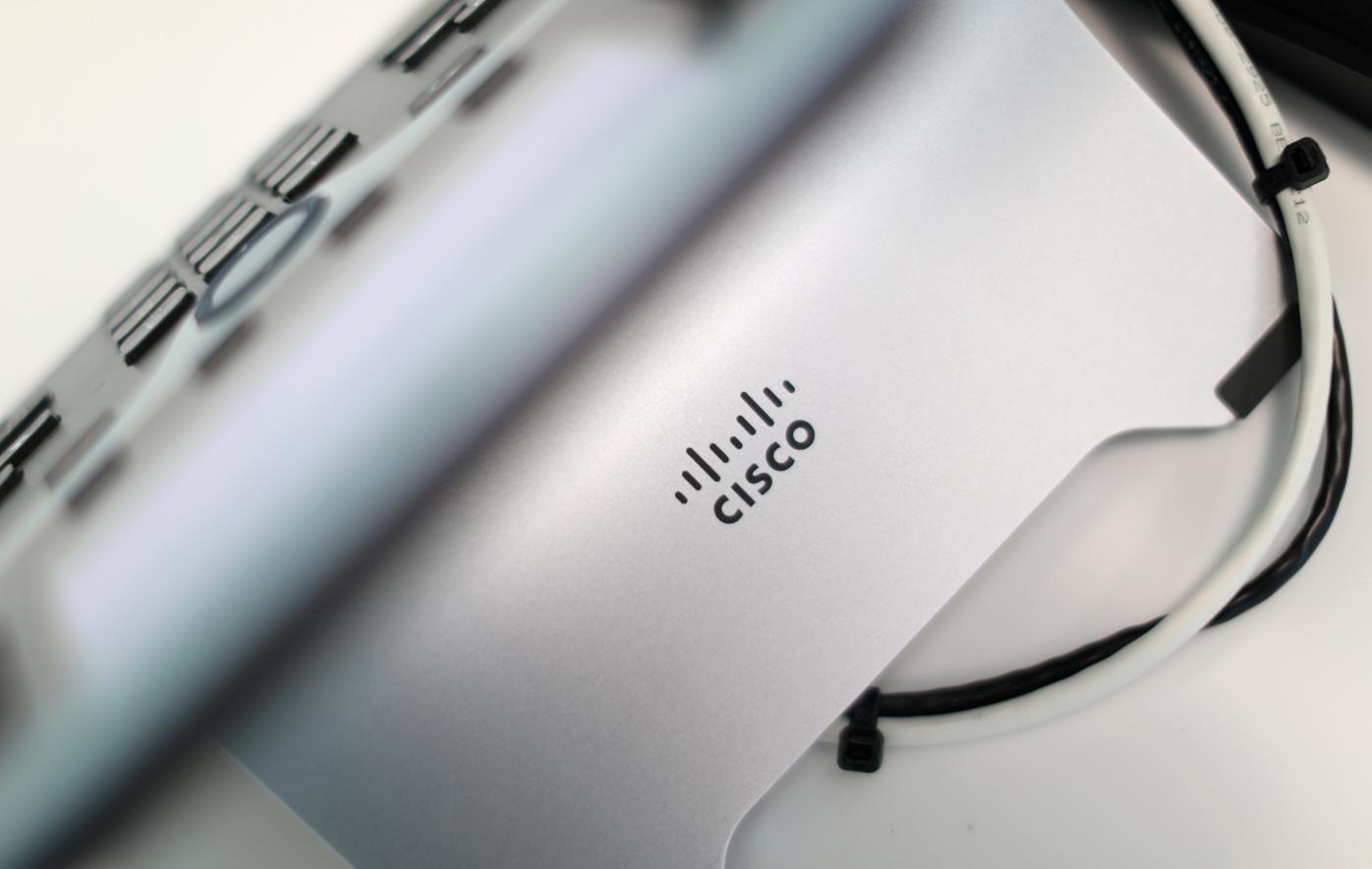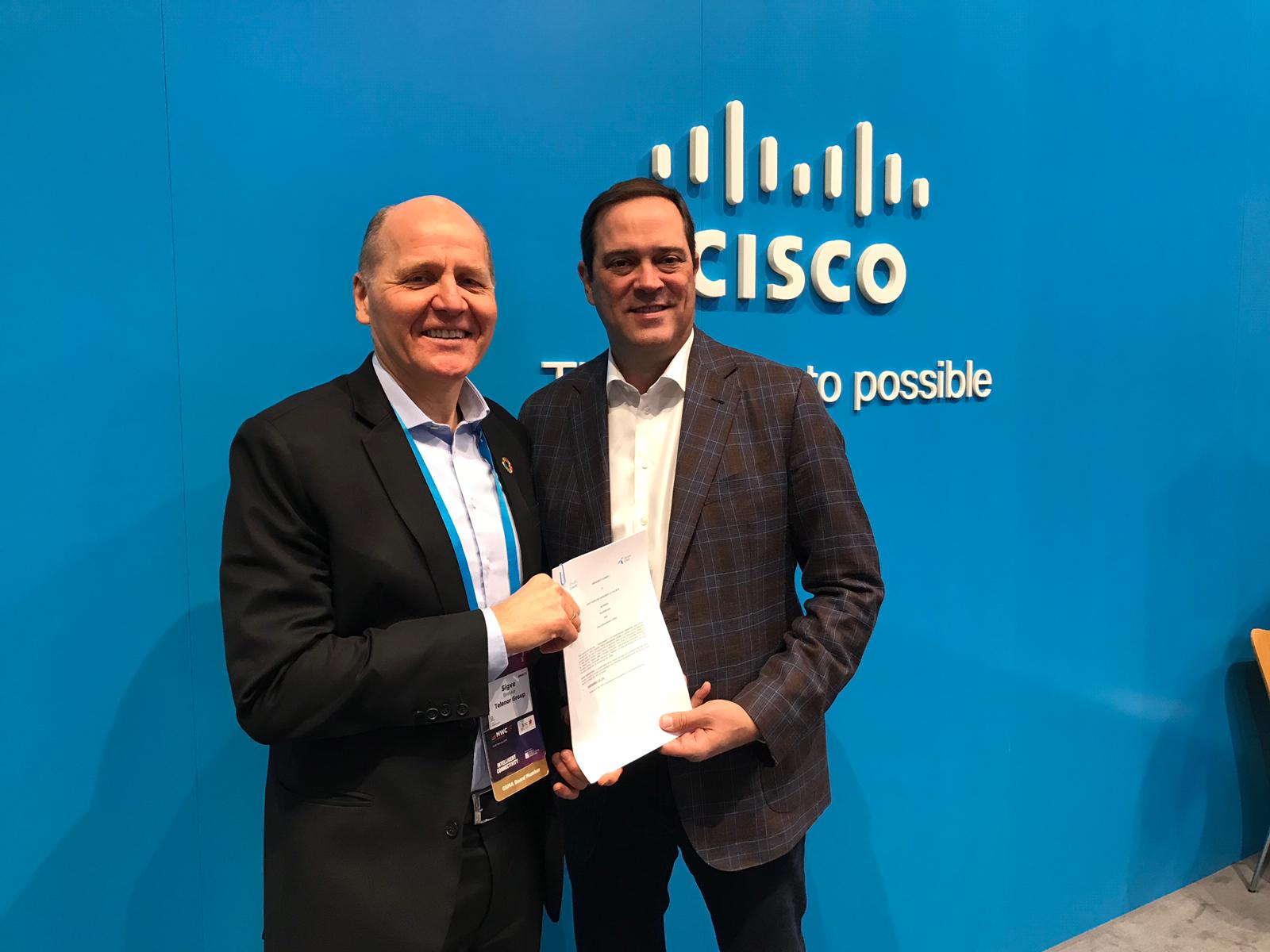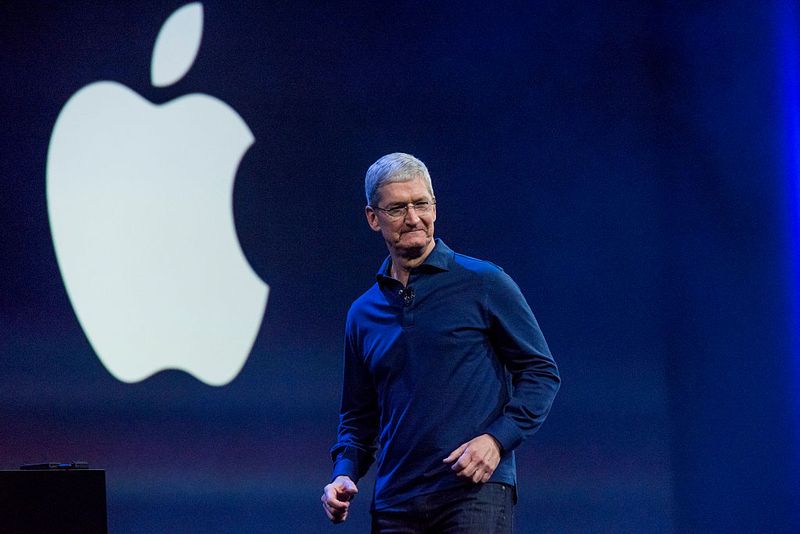News
Data privacy concerns cause sales cycle delays: Cisco

 NEW DELHI: Data privacy concerns are causing significant sales cycle delays for up to 65 percent of businesses worldwide, according to findings in the new Cisco 2018 Privacy Maturity Benchmark Study.
NEW DELHI: Data privacy concerns are causing significant sales cycle delays for up to 65 percent of businesses worldwide, according to findings in the new Cisco 2018 Privacy Maturity Benchmark Study.
In addition, the study shows that privacy maturity is connected to lower losses from cyberevents: 74 percent of privacy-immature organizations experienced losses of more than $500,000 last year caused by data breaches, compared with only 39 percent of privacy-mature organizations.
Privacy maturity is a framework defined by the American Institute of Certified Public Accountants (AICPA) and is based on Generally Accepted Privacy Principles (GAPP).
The study surveyed nearly 3000 global security professionals in 25 countries regarding their privacy maturity and any effects of data privacy on their business. A surprising two-thirds of respondents indicated that data privacy was causing delays in their sales cycles, with an average estimated delay of 7.8 weeks.
The pending May 2018 enforcement of the General Data Protection Regulation (GDPR), the new law enacted to increase protections of European Union (EU) citizens’ privacy and personal data, might also be a factor in these delays. Customers are increasingly concerned that products and services they buy provide appropriate privacy protections. GDPR’s provisions apply to any company that processes, stores, or uses this data.
Respondents were asked to assess their current privacy maturity level, according to the standard AICPA model, which defines five privacy maturity levels: ad hoc, repeatable, defined, managed, and optimized. The study found that:
The average sales delay for those with ad hoc maturity was 16.8 weeks, but delays decreased for businesses with higher privacy maturity levels.
Businesses with optimized privacy processes reported 3.4 weeks of sales delay, which is an 80 percent reduction compared to ad hoc organizations.
Geography and industry also appear to play a significant role in the length of delay
Given these widespread and significant delays, every company should assess its own situation to evaluate where customer privacy concerns might postpone business. Aside from legal compliance, depending on the potential revenue effects and their current privacy maturity level, companies should explore the return on investment of privacy process improvements and the beneficial effects that deploying such measures could have on sales.
Cisco 2018 Data Privacy Maturity Benchmark Study highlights
Data privacy concerns drive sales delays
Companies in the government and healthcare sectors exhibited the longest average sales delays—19 weeks and 10.2 weeks, respectively—compared to other industries.
Companies in the utilities, pharmaceuticals, and manufacturing sectors reported the shortest average delays, all 3 weeks or less.
By geography, Latin America and Mexico are experiencing the longest sales delays, at 15.4 weeks and 13 weeks, respectively.
China and Russia have the shortest delays, at 2.8 weeks and 3.3 weeks, respectively.
Privacy-mature organizations experience shorter sales delays
The average sales delay (in weeks) by privacy maturity stage were as follows: ad hoc (16.8), repeatable (9.8), defined (5.1), managed (4.4), and optimized (3.3).
Since organizations in the defined stage experienced 70 percent shorter sales delays vs. those in the ad hoc stage, companies might benefit significantly from moderate improvements in privacy maturity. Those that are “optimized” saw 80 percent shorter delays.
Privacy-mature companies experience fewer breaches and smaller losses from cyberattacks
Overall, 53 percent of respondents reported losses greater than $500,000 related to cyberattacks in the last 12 months.
Privacy-immature companies (i.e., ad hoc stage) had the highest percentage (74 percent), with the percentage decreasing with increasing privacy maturity. The other levels were repeatable (66 percent), defined (49 percent), managed (43 percent), and optimized (39 percent).
Given the potential effects of these delays on sales and revenues, Cisco advises organizations to take the following steps:
Measure current delays: Assess the scope of sales delays due to data privacy issues and understand how much sales revenue might be affected by the delays.
Assess root causes: Portions of a delay may be caused by sales teams being unable to address customer concerns, incomplete or inaccessible corporate policies, or engineering/design issues. Executives need to know root causes to determine resolutions.
Establish ongoing metrics and targeted initiatives: Regularly measure and track the sales delay metric, and set priorities for appropriate investments to reduce the delays.
Explore effects on cyber losses: Assess the cause of any data breaches and losses that might have been avoided through more mature data privacy processes.
Develop a data privacy and protection plan: If such a plan does not currently exist, plan to create policies and protocols that contribute to good security hygiene.
“This research demonstrates that good privacy is good for business, and organizations need to invest in data privacy governance and process to reap the benefits,” said Michelle Dennedy, Chief Privacy Officer, Cisco.
“Privacy professionals and sales executives all know that privacy/data protection concerns can slow the sales cycle. Having good data to support that knowledge will help drive the actions needed for improvement,” said John Gevertz, Chief Privacy Officer, VISA Inc.
“This study provides valuable empirical evidence of the linkage between firm privacy policies and performance-relevant impacts. These results are indicative of the direction that future empirical research on privacy, and cybersecurity more generally, should take to better validate and focus our understanding of best practices in these important areas,” said Dr. William Lehr, Economist, Massachusetts Institute of Technology.
News
Yotta’s Cloud Data Center in GIFT City, Gujarat goes live
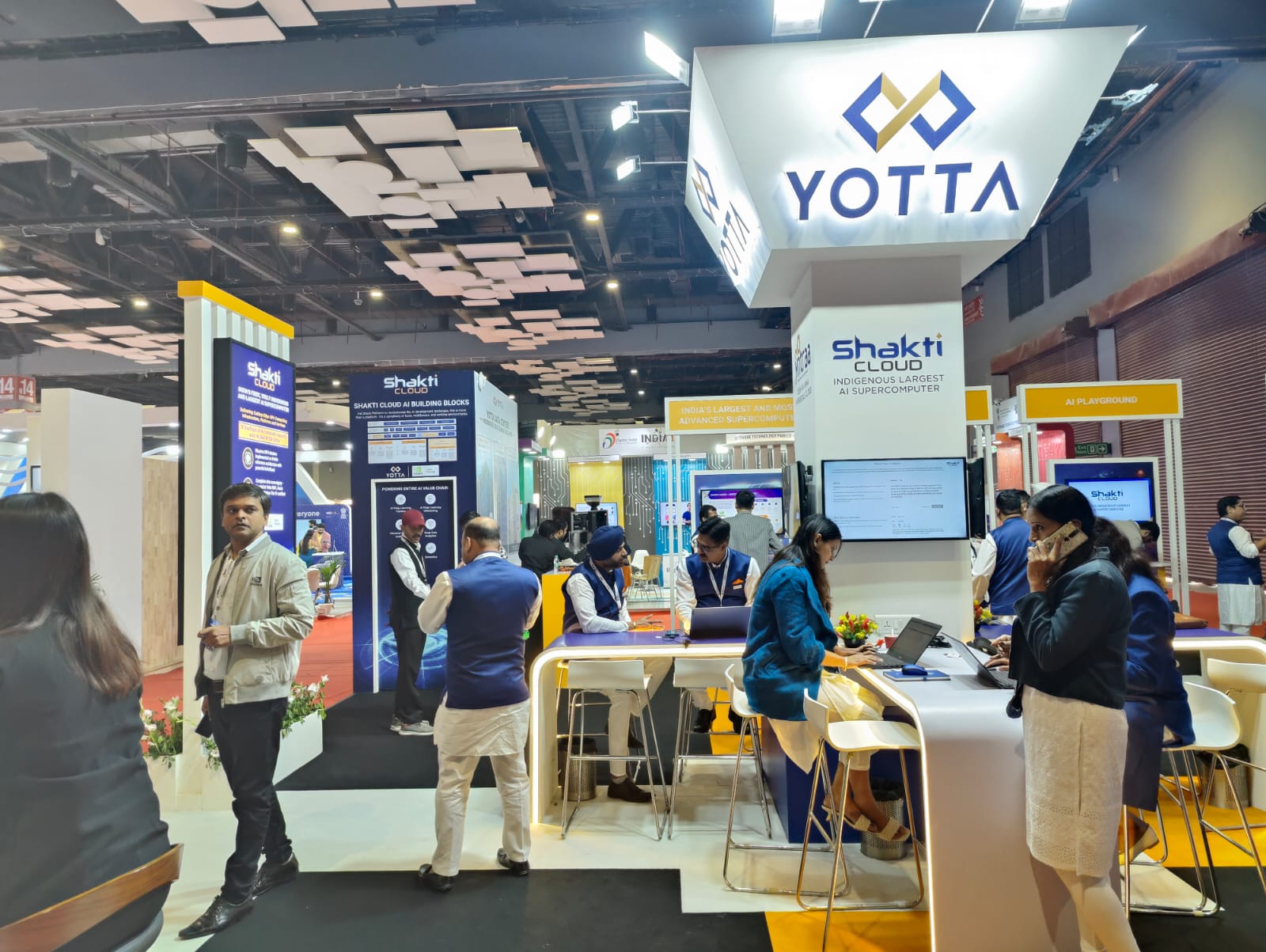
NEW DELHI: Yotta Data Services, an end-to-end Digital Transformation service provider, has announced that its state-of-the-art data centre facility, “Yotta G1”, located in GIFT city, Gandhinagar is ready for service (RFS).
The opening of this data center marks the debut of Yotta in Gujarat and progresses the company’s mission to provide digital services in India’s high-growth markets.
G1 is Yotta’s fifth data center facility in the country. It joins four large operational data centers, two of which, at Navi Mumbai and Greater Noida are part of hyperscale campuses. Yotta G1 is uniquely located inside the International Financial Services Center (IFSC) zone of Gandhinagar’s Gujarat International Finance Tec-City (GIFT city).
G1 represents an investment of more than INR 500 cr. over five years across critical non-IT and IT / Cloud / AI compute infrastructure. The data center has a capacity of over 350 high-density racks and 2 MW power (which can be scaled further as per demand). The facility is designed to meet the most demanding digital needs of its customers, who may be located within GIFT City or anywhere in the world, by seamlessly delivering fault-tolerant facility infrastructure, high-performance Cloud compute and storage infrastructure, advanced physical and cyber security, unmatched connectivity, and steadfast sustainability.
For large global enterprises operating in the GIFT City IFSC zone, the G1 data center functions as a potential data embassy, whereby their data stored is subject to the laws and regulations of their home country, thus allowing them to maintain sovereignty over their data, even when stored in India. By storing data in a physically different location, global enterprises can ensure continuity of operations in case of major disruptions within their borders. The data center’s location also ensures compliance with the IFSC regulations, providing businesses in the zone with distinct advantages like free foreign exchange convertibility, a liberalised regulatory environment, and business-friendly policies. It also helps enterprises adhere to IFSC’s compliance requirements, including being mandated to host their data within the IFSC zone.
Commenting on the announcement, Darshan Hiranandani, Co-founder and Chairman, Yotta Data Services, said, “The state of Gujarat, with GIFT City, has been at the forefront of providing a viable and sustainable platform for global businesses to set up base in India. The setting up of the IFSC zone is a further testament to their vision for financial services companies. We are proud to support this vision of the Gujarat government with a state-of-the-art data center within the IFSC zone, providing the latest and best in cutting-edge technologies to help businesses set up and scale their businesses while also adhering to all regulatory requirements.”
Adding to this, Sunil Gupta, Co-Founder, MD & CEO, Yotta Data Services, said, “Yotta’s G1 marks a pivotal milestone in delivering high-end data center, Cloud, AI compute, storage, connectivity and cybersecurity services to enterprises both on a global and local scale in the Gujarat region. Besides serving the domestic enterprises within and outside GIFT City, our data center shall serve as a potential data embassy for global enterprises, enabling them to adhere to their respective country’s laws while offering a dependable and secure locale for offshore data storage.”
G1 data centre stands distinct in GIFT city for being a data center offering more than just colocation services. True to Yotta’s stature as the end-to-end digital transformation partner of choice for enterprises, G1 brings forth a suite of key features, ranging from advanced data security and customised business solutions to an indigenous hyperscale cloud offering, AI-GPU compute offering, state-of-the-art infrastructure, cybersecurity expertise, seamless integration with managed IT services, 24/7 customer support, cost optimisation, and an overall competitive edge.
This announcement follows on the heels of Yotta’s recent launch of its cloud services – Shakti Cloud and Yntraa Cloud. Powered by NVIDIA’s top-of-the-line GPUs, Shakti Cloud is India’s largest & fastest AI-HPC supercomputer, delivering cutting-edge GPU computing infrastructure, platforms, and services, including Infrastructure as a Service, Platform as a Service, and Software as a Service. Yntraa Cloud, on the other hand, is a truly indigenous hyperscale cloud platform at par with global cloud platforms, offering an exhaustive range of cloud products and services.
News
Optiemus Infracom joins hands with Corning International

NEW DELHI: Domestic contract manufacturer Optiemus Infracom has entered into a joint venture with US-based speciality glassmaker Corning International to set up India’s first manufacturing facility for producing high-quality finished cover glass parts for the mobile consumer electronics industry.
The collaboration between both the companies will help expand India’s electronics manufacturing ecosystem, as the Indian government strengthens its Make in India initiative. As a part of the joint venture, the companies strategically aim to set up a world-class manufacturing facility in India, powered by cutting-edge technologies and processes.
Driven by a shared commitment to innovation and technological excellence, this collaboration will pave the way for the manufacturing of “Made in India” finished cover glass parts for use in mobile consumer electronic devices, and other cover glass applications, to meet the needs of next-generation mobile consumer electronic devices.
The joint venture signifies a powerful synergy between Optiemus’s deep domestic industry and manufacturing knowledge of electronics and telecom market and Corning’s globally-acclaimed expertise in advanced glass technology. By combining these strengths, the joint venture aspires to not only establish cover glass manufacturing capabilities and capacity in India, but also to contribute significantly to the creation of jobs and skill development within India’s thriving technology sector, the companies said in a statement.
Ashok Kumar Gupta, Chairman, Optiemus Infracom, said, “It is a matter of great pride for us to actively contribute to the growing manufacturing ecosystem in the country. With this joint venture, initiated in line with the vision of Hon’ble Prime Minister of India of ‘Make in India’ programme and the “Atmanirbhar Bharat” initiative, we are committed to make available world-class high-quality products for global and local brands.”
“Embarking on this new journey, we intend to emerge as one of the top manufacturers of finished cover glass parts for use in mobile consumer electronic devices in the next five years. Our collective expertise in innovation, design, and manufacturing, will provide holistic solutions for the brands,” Gupta added.
5g
MediaTek Catch-up with Tech: Infinix Zero 30 5G with Dimensity 8020 launched

NEW DELHI: Chipset maker MediaTek, which claims to power more than two billion connected devices every year, hosted ‘Catch-up with Tech’ in collaboration with handset brand Infinix on August 28 to share insightful and engaging conversations about the new-age smartphones and innovative technologies powering everyday lives.
The meet-up threw the spotlight on the MediaTek Dimensity Auto, Satellite solutions and Generative AI along with an extensive showcase of newly-launched Infinix Zero 30 5G powered by MediaTek Dimensity 8020, Infinix GT 10 Pro powered by MediaTek Dimensity 8050, and Infinix QLED TV powered by MediaTek.
In terms of specs, the Infinix Zero 30 5G is tailored for young storytellers and creators, featuring the first-ever smartphone to deliver 4K 60fps video recording from its 108 MP OIS rear camera and ultra-high resolution 50MP front camera. The Zero 30 series powered by MediaTek Dimensity 8020 is said to be a game changer for the front camera vlogging experience along with being the slimmest curved AMOLED smartphone in the segment with glass and a vegan leather back panel. It also claims to be one of the most premium-looking devices in the segment.
The event witnessed a panel discussion moderated by Anuj Sidharth, Deputy Director Marketing & Corporate Communications, MediaTek and included expert panelists from Infinix, MediaTek and two renowned professional photographers.
“With the fifth edition of Catch-up with Tech, we aim to bring consumers closer to the technology and enable them to make informed buying decisions based on their diverse needs. In collaboration with Infinix, this meet-up is in-line with MediaTek’s vision of technology democratization and making innovative technology accessible to everyone,” said Anku Jain, Managing Director, MediaTek India. “The MediaTek Dimensity 8020 in Infinix Zero 30 5G brings faster displays, brilliant cameras and ultra-fast performance. Further, MediaTek Imagiq technologies enrich the capture experience by combining dedicated AI, imaging processors and accelerators to provide incredible results,” he added.
Anish Kapoor, CEO, Infinix Mobile India, said, “Featuring India’s first 50MP 4K 60 fps video recording, Infinix Zero 30 5G is primed to redefine smartphone imaging capabilities, setting a new standard for the creators and vlogging enthusiasts. Our collaboration with MediaTek has played a pivotal role in shaping our exceptional smartphone portfolio, and the Zero 30 5G stands as evidence of our unwavering commitment to innovation and delivering unmatched experiences to our users. The display and design of the device represent a leap forward in smartphone technology. As Infinix Zero 30 5G hits the shelves, we are positive that our customers will find this new offering as exhilarating as we do, further empowering creators to capture their story like never before.”
Radhakrishnan Chakyat, a photography evangelist, founder and host of Pixel Viilage, said, “Infinix Zero 30 5G smartphone powered by MediaTek Dimensity 8020 chipset has amazing hardware features, an excellent camera, dual-view video mode and is primed for optimal content creation and saves a tremendous amount of editing time.”
Aarzoo Khurana, a wildlife photographer, said, “Over the last few days, I clicked various pictures and recorded a few videos with the newly-launched Infinix Zero 30 5G powered by MediaTek Dimensity 8020, and the experience has been truly inspiring. Infinix’s smartphone’s OIS feature helps content creators click shake-free pictures and the front camera, which is extremely sharp and detailed, enables content creators to click countless selfies.”





